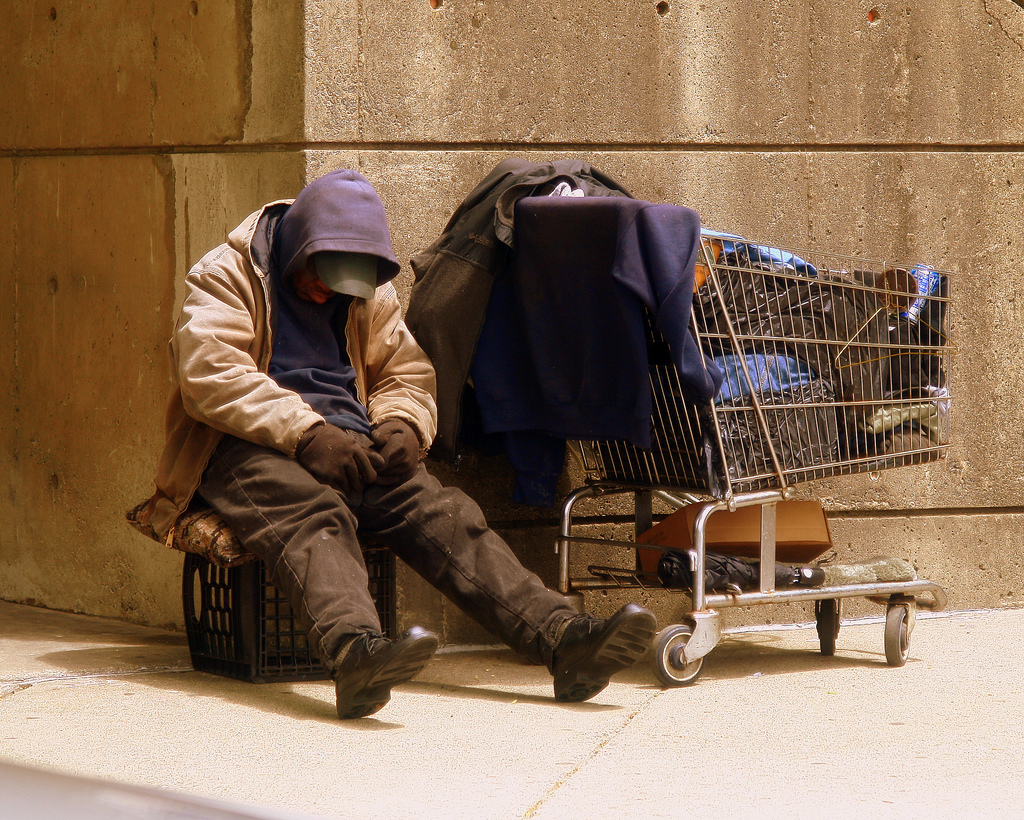Views expressed in opinion columns are the author’s own.
If asked to picture the perpetrator of a hate crime, one might consider the two young men who pistol whipped, tortured and abandoned Matthew Shepard, a young gay man, or former University of Maryland student Sean Urbanski, who was charged with murder and later indicted on a hate crime in the death of 2nd Lt. Richard Collins. Prosecutors say Collins was attacked because he was black.
Americans probably wouldn’t imagine, however, the three Florida teenagers who targeted Frank Rudolph, a 54-year-old homeless man, and beat him to death with both fists and sticks. They don’t picture the two San Diego brothers who tortured and killed George Lowery, a 50 year-old homeless man, father and husband of 25 years.
Fatal assaults against people experiencing homelessness outnumber hate-crimes against all protected classes combined. Between 1999 and 2015, at least 1,657 homeless individuals were violently attacked, in many cases because of their housing status, according to a report by the National Coalition for the Homeless (for which, in the interest of full disclosure, my father served as president and executive director).
These acts are largely fueled by a cultural instinct, mostly among young men, to attack the homeless for a thrill. When police questioned a group of Philadelphia pre-teens for creating a game in which players rob and stomp on unhoused individuals, the participants described the activity as “something stupid we do for fun.”
Yet the federal government doesn’t treat housing status-based crimes as hate crimes; in fact, the Justice Department isn’t even required to collect data on such acts. Some states, including Maryland, consider attacks against homeless people hate crimes, and the federal government’s inability to do so is a scandal.
When arguing that homeless individuals don’t deserve heightened legal protection, many observe that housing status is malleable, whereas race or disability status isn’t. This is certainly true. But the FBI also collects data on anti-religious hate crimes. Religious identity is stable but not immutable — an individual’s religious association can change several times over a lifetime. So, a characteristic doesn’t have to be static for it to necessitate enhanced legal protection.
Hate crimes are particularly reprehensible because individuals are singled out for a characteristic they did not choose. This fact unites crimes against the homeless with hate crimes targeting religious, sexual and ethnic minorities. Few homeless individuals chose their housing status. It was imposed through systemic injustice, uncontrollable mental illness or cruel fate.
When most Americans think about homeless individuals — from a considerable distance, to be sure — it is with some mixture of revulsion, pity and fear. Once human misery reaches a certain depth, we retract the compassion we afford to our colleagues, classmates and family members.
And such callousness is a bipartisan affair. Liberal opinionator Kevin Drum once wrote, “About half the homeless suffer from a mental illness and a third abuse either alcohol or drugs. You’d be crazy not to have a reflexive disgust of a population like that.” Empathizing with some homeless individuals would be too agonizing, so we harden ourselves to their pain and justify indignity no human should suffer. At a basic level, people experiencing homelessness require our compassion and individual decency.
But they also require justice. They require a societal ordering that redistributes our treasure toward the least among us. Homeless individuals require not just changes etched into our hearts but changes etched into our laws.
And that’s why we must expand hate crime statutes to include housing-status inspired crimes. When a criminal beats, tortures and kills another human for a characteristic they didn’t choose, it sends waves of terror through an entire community. When a violent act is based on identity, its effect magnifies. One killing touches thousands, and, when such killings happen again and again, year after year, it strips a community of its citizenship and humanity.
The unhoused in this country face compound terrors — terror at not being able to find a meal, terror at freezing during a winter night, terror of a brutal assault at teenagers’ hands. And while the federal government should levy many policy attacks on the conditions that facilitate extreme poverty, the least it can do is protect homeless people from arbitrary violence. By enhancing legal protections for the unhoused and using hate crime laws to check people who would do them harm, the federal government can inch toward giving homeless people the dignity they deserve.
Max Foley-Keene, opinion editor, is a sophomore government and politics major. He can be reached at opinionumdbk@gmail.com.



